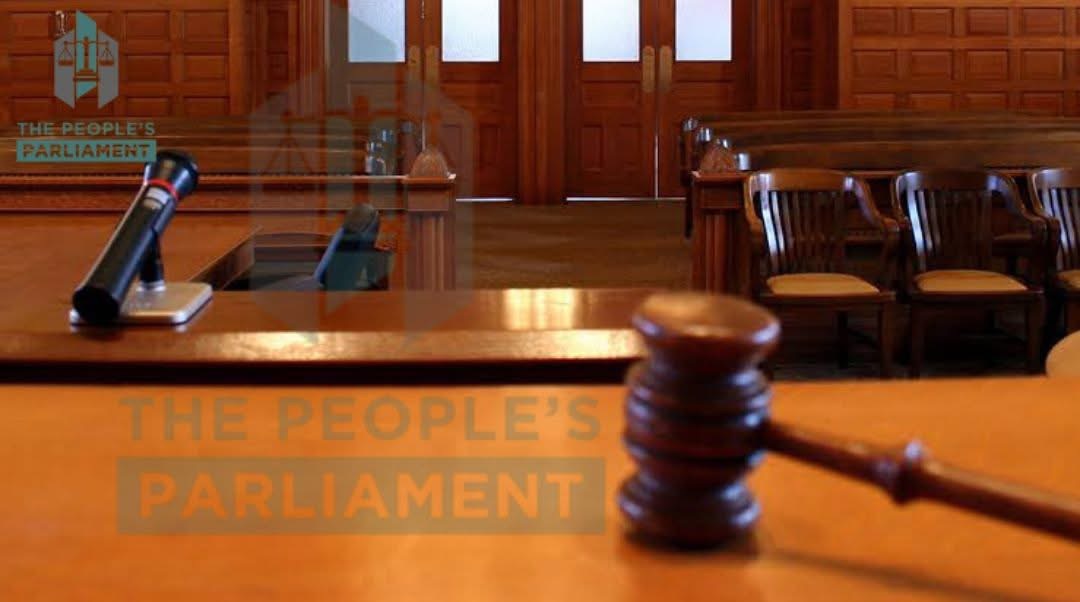Law parliament
Cult’ist just kpai one guy in my street now and everyone is running away, even my landlord don pack small cloth run telling me he will come back next week when he confirms every where is calm. Atanda, do i need to run away like others when i am innocent Do i have to run away from the house i paid for just because they kpai some one in my street

You don’t need to run away like others but kindly restrict your movement at nyt cos the P0Lice might raid at night and pick anyone they see claiming you are a suspect.
If you know you will stay indoor at night, you can stay
But if you know say you be waka waka for night
Pls run away for the main time
Or else
Na from inside cell you go ask Atanda the next question 🤣🤣🤣
Mosquito go don bite the hell out of you before police conclude that you know nothing about it and let you go.
If them come decide say them go carry una go court on Monday
Na him be say you go dey cell till Monday
But for general safety and retaliation from the cult group
Your street is not safe for now and i advise you stay away from the street for now
Ignorance of the law is no excuse
Law parliament
Osun JUSUN: National President to dialogue with Osun Judiciary

The National President of the Judiciary Staff Union of Nigeria, JUSUN, Marwan Adamu, has indicated a willingness to engage in dialogue with the judiciary management in Osun State regarding the industrial action embarked upon by the state chapter.
The Osun JUSUN Chairman, Comrade Idris Adedayo Adeniran, made this disclosure in a statement issued and made available to Ekwutosblog after the union’s monthly congress in Osogbo on Monday.
According to Adeniran, Adamu also expressed openness to meeting and discussing the pressing issues affecting Osun JUSUN members.
He disclosed that the JUSUN president stated that resolving the strike depended on whether the judiciary management in the state was genuinely committed to finding a resolution to the impasse.
The statement reads, “The National President of JUSUN has extended an olive branch, indicating a willingness to engage in dialogue with the Judiciary management. He has expressed openness to meeting and discussing the pressing issues affecting our members, provided that the management is genuinely committed to finding a resolution.”
While condemning the Osun State Chief Judge, Justice Oyebola Adepele Ojo, for her indifference towards the ongoing JUSUN strike, Adeniran commended the Osun State Council of the Nigerian Labour Congress, NLC, and the leadership of the Nigerian Bar Association, NBA, for their tireless efforts to resolve the industrial action.
“The Congress vehemently condemns the Honorable Chief Judge’s egregious display of indifference to the ongoing JUSUN strike. Her abrupt departure from the state on the strike’s commencement day, coupled with her persistent absence from the state, demonstrates a shocking lack of commitment to engaging with JUSUN leadership.
“Instead of addressing the pressing concerns of judiciary staff, lawyers, and the general public, Her Lordship has chosen to travel abroad. This blatant disregard for the welfare of those who serve the judiciary and the public they serve is unacceptable.
“We appreciate Comrade Christopher Abimbola Arapasopo, Chairman, NLC Osun State, for standing with us during this tough time. Your support and commitment to justice and fairness inspire us. We are honored to have you as an ally.
“Thanks for championing workers’ rights and welfare. We are proud to have you as a partner. We also thank the leadership of NBA for their tireless efforts to resolve the ongoing JUSUN strike,” the statement added.
The congress also condemned attempts by the judiciary management to use JUSUN members as security guards.
While insisting that such a practice is unacceptable, the congress affirmed that members were not employed as security personnel and that their concerns must be addressed accordingly.
Law parliament
Margaret Obi Appointed As A High Court Judge In UK

A former Nigerian solicitor, Margaret Obi, has been appointed as a High Court judge in England and Wales.
Her appointment, which took effect on October 3, 2025, was confirmed by several British outlets, including Global Legal Post.
Obi is reported to be “one of only eight current High Court judges who previously practised as solicitors.”
She will serve in the King’s Bench Division and is expected to bring over 27 years of legal practice and seven years of judicial experience to the role.
Congratulating her, Head of Pump Court Chambers in the UK, Oba Nsugbe (KC), said, “For as long as I have known her, Mrs Justice Obi has always been naturally low-key and entirely grounded; never once forgetting her Nigerian roots.”

Before her elevation, Obi served as a Deputy High Court Judge, a Deputy Upper Tribunal Judge and Chair of the Competition Appeal Tribunal.
She was also appointed acting judge of the Supreme Court of the British Indian Ocean Territory in 2023.
Law parliament
Your Phone Conversations can be Used in Court be careful what you say

Many people still think that once they hang up a call, the conversation disappears forever but in law, that’s not always true.
Your phone conversations yes, your voice calls, WhatsApp voice notes, and even audio recordings can be used as evidence in court, provided they were obtained legally.
The Evidence Act 2011 recognizes electronic evidence this includes phone recordings, text messages, WhatsApp chats, and emails.
So, if a recording can be proven to be authentic (not doctored, and properly linked to the person who made the statements), it is admissible. For instance:
- If you threaten someone over the phone, that recording can be tendered in court.
- If you admit owing money or confess to wrongdoing during a call, that recording can be used against you.
- Even a business agreement reached over a voice note can be presented as proof of contract.
But here’s the key part the recording must be obtained lawfully.
This means you cannot secretly bug another person’s phone or tap private calls illegally. That would breach their right to privacy under Section 37 of the 1999 Constitution.
However, if you’re part of the conversation meaning you were one of the callers recording the call for your own record is not illegal. You don’t even need the other person’s permission, though ethically it’s better to inform them.
So when you speak on the phone, speak wisely.
Don’t say things you wouldn’t want to see played in open court someday because as we say in law the court may forget the face, but not the voice.
The world has changed. Evidence has evolved.
That “small voice note” or “short phone rant” could one day stand as your testimony or your undoing.
-
Business1 year ago
US court acquits Air Peace boss, slams Mayfield $4000 fine
-

 Trending1 year ago
Trending1 year agoNYA demands release of ‘abducted’ Imo chairman, preaches good governance
-

 Politics1 year ago
Politics1 year agoMexico’s new president causes concern just weeks before the US elections
-

 Politics1 year ago
Politics1 year agoPutin invites 20 world leaders
-

 Politics1 year ago
Politics1 year agoRussia bans imports of agro-products from Kazakhstan after refusal to join BRICS
-
Entertainment1 year ago
Bobrisky falls ill in police custody, rushed to hospital
-
Entertainment1 year ago
Bobrisky transferred from Immigration to FCID, spends night behind bars
-
Education1 year ago
GOVERNOR FUBARA APPOINTS COUNCIL MEMBERS FOR KEN SARO-WIWA POLYTECHNIC BORI
















